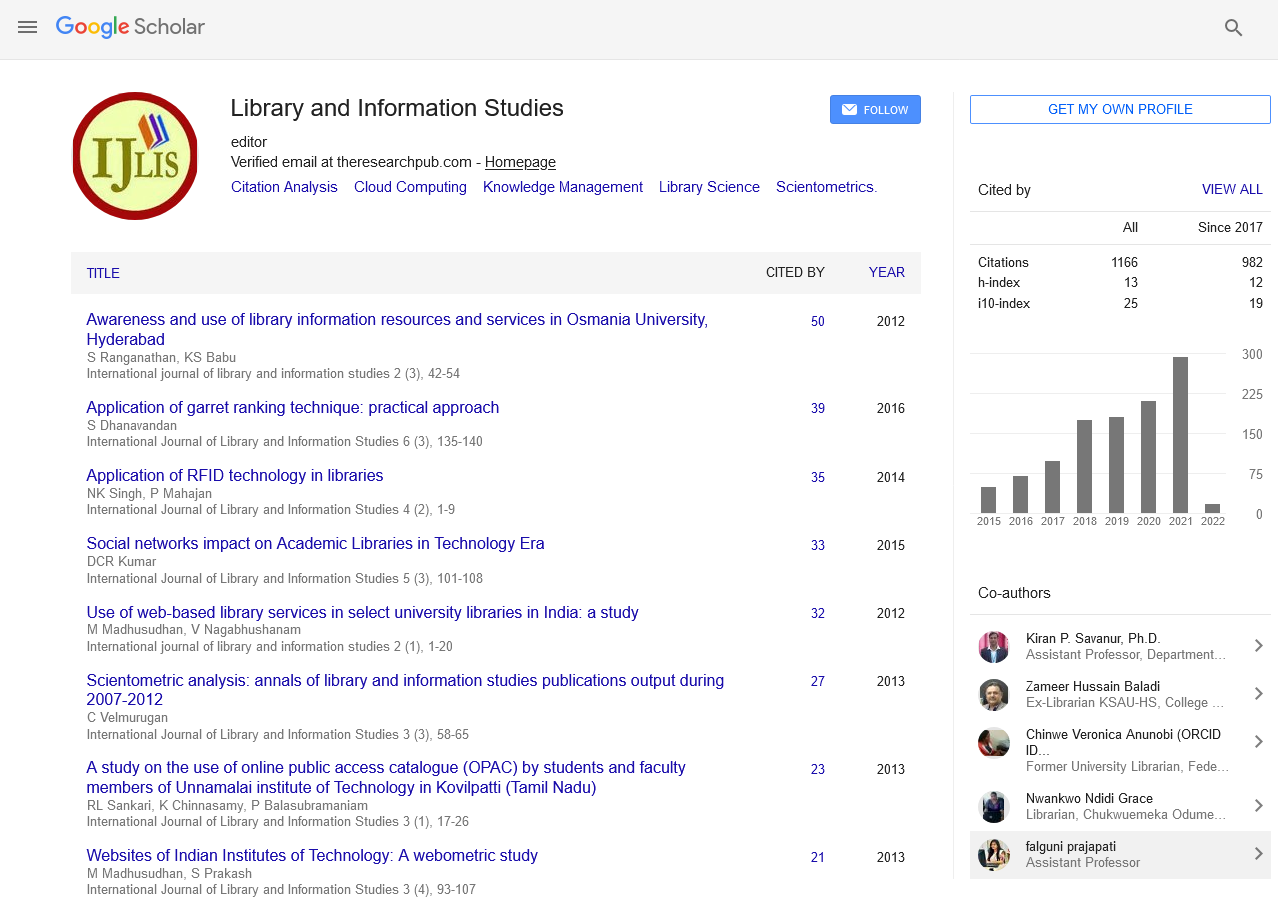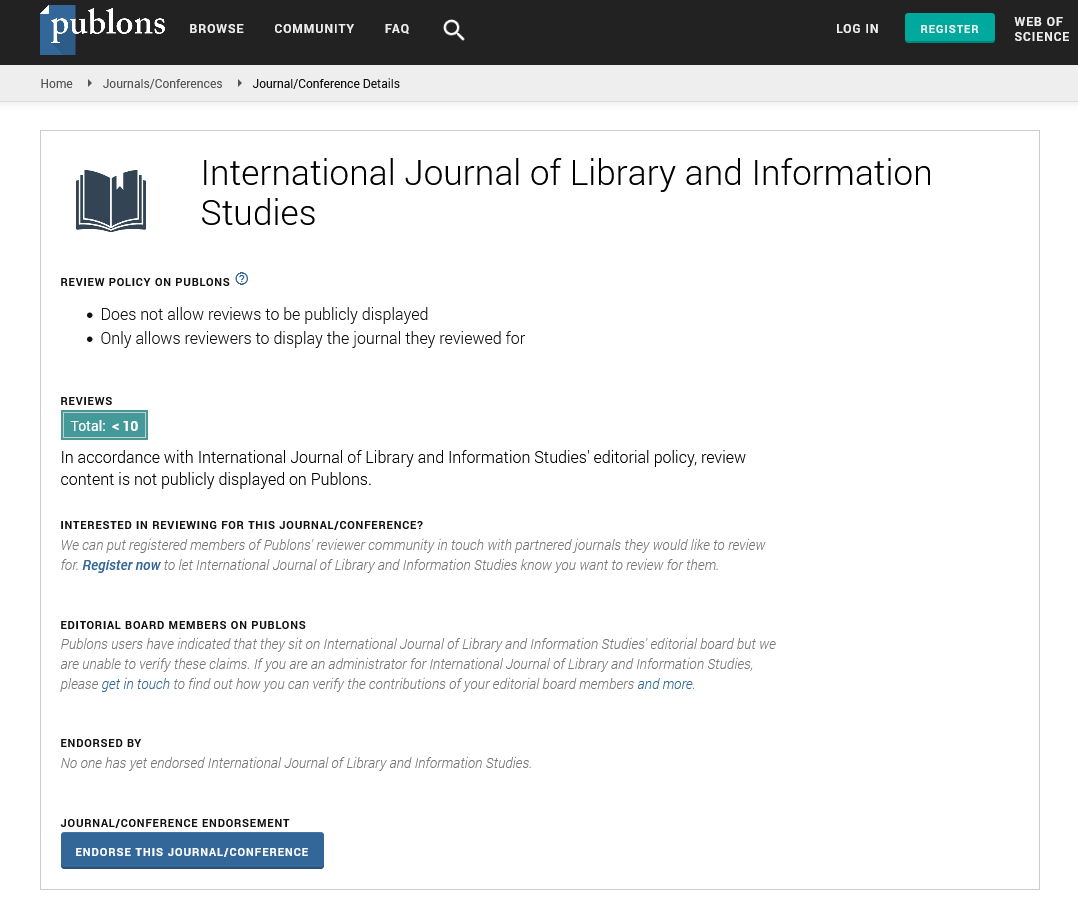

Information Seeking Behavior of Students with Visual Imparements: A Case of Kenyatta University Library.
Abstract
Author(s): Wamalwa Lucas Wanangeye, Joshua Ilavonga, Martha Thuo, Kimani Maina Anthony
The point of the study was to set up the outwardly hindered students? information looking for practices, which contains information needs, looking for and use. The students? information looking for conduct was plotted utilizing Wilson’s (1999) Information Behavior show and the model was surveyed for use with this gathering. Distinguishing the students? information looking for conduct decided if the administrations that are given by Kenyatta University met their information needs or not. Results from the three units of study were incorporated into a general thought of the elements of information looking for conduct displayed by the understudies and changes were recommended on Wilson's (1999) Information Behavior show which fit the gathering under examination. The requirement for a financial plan for the buy of assistive gadgets (or consolidating standards of all inclusive structure in the information framework) and staff preparing is likewise talked about. Proposals are made in light of the aftereffects of the examination as far as directing an entrance review of library administrations and building up a procedure to execute the arrangement. The aftereffects of the study showed that the vast majority of the understudies favored electronic contrasted with print information groups, contingent upon their dimension of sightedness for the individuals who were somewhat located. The number of inhabitants in the study included three units of examination which were nine understudies with visual impedances, seven Subject Librarians of Kenyatta University library and the Disability Unit Coordinator. The understudies were reviewed by methods for a semi-organized meeting where they were asked what their information needs were, the manner by which they addressed those issues and whether the information they found from the organization's information framework addressed their issues or not. The reaction rate was 100% from every one of the units of examination.
Call for Papers
Authors can contribute papers on
What is Your ORCID
Register for the persistent digital identifier that distinguishes you from every other researcher.
Social Bookmarking
Know Your Citation Style
American Psychological Association (APA)
Modern Language Association (MLA)
American Anthropological Association (AAA)
Society for American Archaeology
American Antiquity Citation Style
American Medical Association (AMA)
American Political Science Association(APSA)



